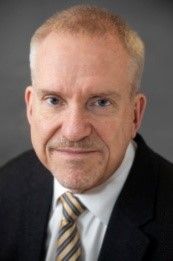The Hymn Society has had its work cut out for it in the COVID-19 pandemic, trying to help music ministers, choirs, composers and others adjust to virtual worship.
But 2021 is likely to be challenging, too, said J. Michael McMahon, executive director of the international society committed to supporting congregational song as integral to worship.

Michael McMahon
In his January message to members of The Hymn Society in the United States and Canada, McMahon predicted “2021 will also bring new opportunities for churches and other worshiping communities as we gradually resume in-person gatherings. What will be the ‘new song’ and what fresh approaches will renew our singing? How will our communities sing differently as we come together once again to offer praise and prayer, to hear and respond to God’s word, to celebrate God’s presence, and to embrace God’s ways in the world?”
McMahon spoke with Baptist News Global about the ways congregational song may be experienced in the coming year and how musicians, singers and composers got through 2020.
Does the society focus on one particular genre of music?
Stylistically, it runs the gamut from organ choir to band-led and it is also ethnically, culturally and racially diverse. There is a lot of inclusion of global song, as well. Wherever congregations are singing, we want to be there with them. We want to know about them. We want to include them, and we want them to be part of the conversation about how music is part of worship.
Would you say those involved in music ministry were among the most impacted by the closing of in-person worship during the pandemic?
Totally. I spent many years as a choir director, and you get into that routine. You are constantly preparing, gathering and leading. Singing is part of the rhythm of your life. Not only that but singing connects people, and when that’s gone from your life, that leaves a big hole. It’s especially the case for people who do this at a more intensive level.
For nine or 10 months they have had to step up with some creative solutions. Yesterday on Zoom I heard someone share that when all this started, they were determined they were not going to create a virtual choir. But over the months their position softened because their people needed music. We have all come up with creative ways to sing together the best way we can until we get back in person.
How did the society respond to the pandemic?
One of the things we did almost immediately was decide to go all digital in our annual conference in the summertime. A more immediate action was to start having weekly Zoom gatherings that anyone could attend. These were to support one another and to share ideas of how to respond and how to keep ourselves supported to do the work for our congregations. It was very successful. We are fewer than 1,000 individual members, but we had more than 100 people on each Zoom gathering.
And then we did host a fully digital conference in July that actually helped us reach even further than if we had been together in person. The digital platform gave us the opportunity to include people who couldn’t travel to be with us. We were able to include people from 15 countries on six continents. So, it certainly broadened the scope of the gathering and created a way to support each other on a deeper level.
It taught us we can still do that for one another if we can’t be together. We couldn’t sing together the same as before, but we found creative ways to get around that. One of the highlights of the gathering was the sharing of congregational music of different genres. We had organ one evening and African American singing on another evening and so on. We even had Asian-Pacific. We were able to create mostly prerecorded events that included singing that exposed people to different styles and different contexts and different cultural settings.
“Churches are realizing that when they go back to in-person worship, they need to keep connecting with people who can’t be there in person.”
Do you see those virtual offerings continuing after the resumption of in-person worship?
Yes. Our board is committed to doing hybrid events going forward so that we can include many more people, and I think churches are having the same experiences. Churches are seeing lots and lots of participants from all over the place who are attracted to their online worship. They are realizing that when they go back to in-person worship, they need to keep connecting with people who can’t be there in person.
You mentioned music ministers being creative during the pandemic. What are some of the more notable innovations you saw in 2020?
Just in terms of singing, that people have learned to use Zoom and YouTube and other platforms to create singing experiences that allow people to connect to a larger worship experience from their homes. Some of the virtual choirs I have seen have been absolutely astounding. They have found ways to provide experiences virtually that are spiritually enriching.
What challenges do you see for music in the eventual return to in-person worship?
I think it may be a painful transition for some. It may be awkward and difficult at first. But I think people will be really, really glad to get the process going. An integral part of worship is presence.
For musicians, I think the first step will be to ask if it’s safe for us to sing together again. And will we be able to go back to singing together all at once? I don’t know the answers to those questions. We have to be nimble. We have to be responsive to the actual situation and part of that is not predetermining what we are going to do.
“We have now all experienced what it is like to be excluded, and that gives a responsibility to those who can’t be there.”
Part of all of this is learning from the pandemic. We are not just going to go back to business as usual. We are going to be more attuned to what it means to be together in one place. We want to do that with greater deliberation and while also being more inclusive of those who can’t be physically present and how we can serve them. When you think about it, we have now all experienced what it is like to be excluded, and that gives a responsibility to those who can’t be there.
In what ways might music ministry be different than before the pandemic?
I think we will see a doubling down on our understanding that worship is a corporate act. It’s not a spectator sport. And singing is an integral part of that. People will be asked, are you giving your all to this experience? I want to encourage people to take an active role and not just sit back and let someone else do all the singing. Coming together is a privilege, and people will be challenged to take an active part and respond to that privilege, and to participate in song and carry what we sing into our lives.


